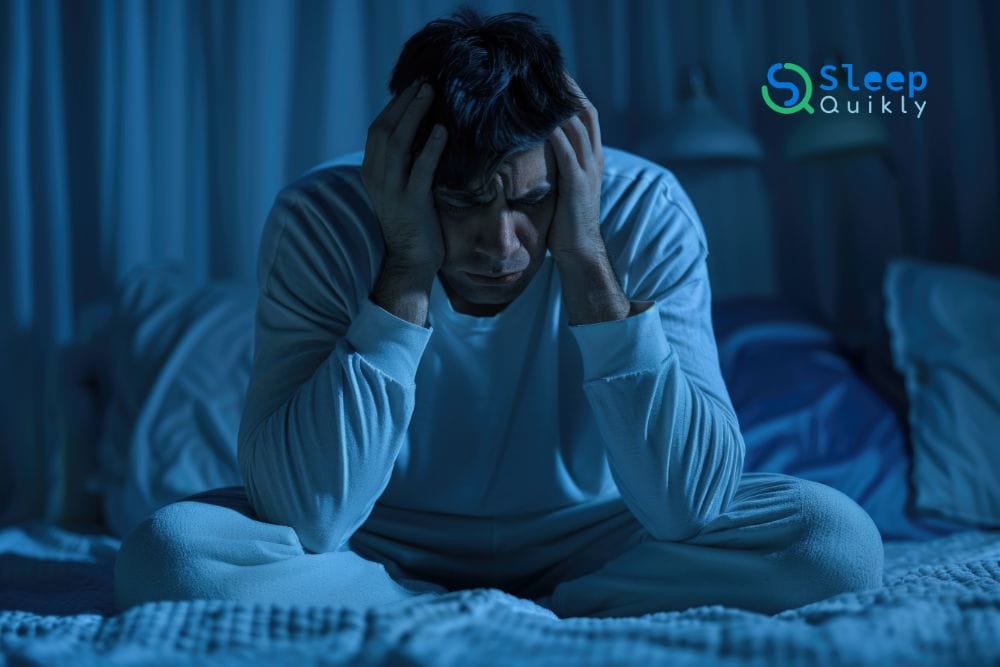Understanding the Critical Role of Sleep in Overall Well-being
Sleep isn’t just downtime for your body—it’s an active, essential process that deeply impacts your physical, mental, and emotional well-being. How sleep deprivation affects health is a critical issue that can’t be ignored. But why is sleep so important? It’s when your body kicks into repair mode, working to restore physical energy, strengthen the immune system, and even consolidate memories. You cycle through non-REM and REM sleep, two key stages. The former is a time of deep physical recovery, while the latter focuses on cognitive processing and emotional balance. Miss out on one, and you’re shortchanging your body’s natural rhythm.
Most adults need about seven to nine hours of sleep per night, while children and teens require even more to support their rapid growth and development. Chronic sleep deprivation, on the other hand, is like a slow poison to your system. Research has shown that adults who consistently sleep less than seven hours are at greater risk for long-term illnesses like heart disease, diabetes, and even obesity. The physical consequences of skimping on sleep extend far beyond a little fatigue.
Cognitive and Emotional Consequences of Sleep Deprivation
Let’s not forget about your brain and emotions—both of which take a major hit when you don’t get enough rest. Have you ever tried concentrating after a bad night’s sleep? Memory fades, attention spans shrink, and suddenly even simple tasks feel overwhelming. Studies have likened the cognitive impairment caused by just one night of poor sleep to being drunk. Imagine trying to navigate your day while mentally stumbling through a fog.
Sleep also plays a critical role in emotional regulation. Without it, irritability skyrockets, anxiety levels rise, and stress becomes almost unmanageable. In fact, the American Psychological Association found that nearly 40% of people reported poor sleep as a key trigger for their anxiety. It’s a vicious cycle: the more anxious you are, the harder it is to sleep, and the worse your emotional state becomes. It’s clear that sleep isn’t just about feeling rested; it’s about protecting your mental and emotional health.
Physical Toll: How Sleep Deprivation Impacts Your Body
Lack of sleep weakens your immune system, leaving you more vulnerable to illnesses. One study from the University of California found that people who sleep less than seven hours are three times more likely to catch a cold. The immune system can’t perform its best without rest. But it gets worse: long-term sleep deprivation raises your risk of chronic diseases like heart disease and diabetes. It even messes with your metabolism, increasing the likelihood of obesity. The World Health Organization has linked sleep deprivation to metabolic disorders, making the connection between sleep and physical health impossible to ignore.
The Ripple Effect: Societal Consequences of Sleep Deprivation

But the problem goes far beyond individual well-being. The effects of sleep deprivation ripple through society, hitting workplaces and public safety hard. In the corporate world, sleep-deprived employees are less productive, less creative, and more prone to making errors. Studies estimate that the economic cost of sleep-related productivity loss runs into billions of dollars annually. That’s not just a corporate problem—it’s a hit to the economy at large.
Absenteeism is another consequence. People who don’t get enough sleep are more likely to take sick days, putting added strain on their colleagues and decreasing team performance. When employees are physically present but mentally absent, the whole system suffers.
Perhaps most alarming is the link between sleep deprivation and drowsy driving. Just like alcohol, lack of sleep impairs your reaction times and decision-making skills, making driving a risky endeavor. In fact, drowsy driving is responsible for thousands of traffic fatalities every year. And it’s not just on the road—sleep-deprived professionals in high-stakes fields like healthcare and transportation put others at risk, too.
How Sleep Deprivation Affects Health
Improving Sleep: Practical Strategies for Better Rest
So how can you mitigate the effects of sleep deprivation? Start with your environment. Make sure your bedroom is a sleep sanctuary—cool, dark, and quiet. Blackout curtains, white noise machines, and comfortable bedding can make a world of difference. Establish a consistent bedtime routine to signal to your body that it’s time to rest. Whether it’s reading, meditating, or stretching, find activities that help you wind down.
Managing stress is also crucial. Techniques like deep breathing, journaling, or practicing mindfulness can lower your anxiety levels, making it easier to fall asleep. And while it’s tempting to unwind in front of the TV or scroll through your phone, screen time should be limited in the hour before bed. The blue light emitted by electronic devices disrupts melatonin production, the hormone that regulates your sleep-wake cycle.
If these strategies don’t improve your sleep, it may be time to seek professional help. Sleep disorders are not just inconvenient—they can have serious consequences for your physical, mental, and emotional well-being. Consulting a healthcare provider could offer more personalized solutions, from therapy to medication.
Conclusion: Sleep as the Foundation of Health
In the end, the impacts of sleep deprivation are vast and multifaceted, affecting your physical health, mental clarity, emotional stability, and even societal well-being. Addressing the root causes of sleep deprivation and making a concerted effort to improve sleep hygiene is essential for a healthier life, both on an individual and societal level. Failure to do so risks perpetuating a cycle of poor health and diminished productivity. Sleep isn’t just rest—it’s a fundamental pillar of life itself
How Sleep Deprivation Affects Health


3 thoughts on “How Sleep Deprivation Affects Health”